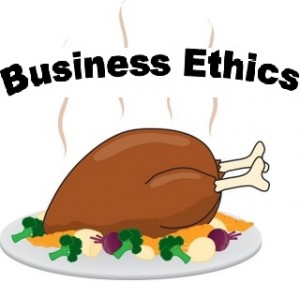Bringing the topic of business ethics to life, I brought the Nestle debate to my father; however, little to my surprise, my father argued that Nestle is conducting an ethical business. From his perspective, he claims that “that’s the nature of business” – a company’s goal is to retrieve their inputs at the lowest possible costs to maximize their profit while abiding by all rules and regulations. As we discussed the issue, I reasoned that Nestle is acting unethically by abusing the community and not paying for the resources it’s removing; however, he states that water is a renewable resource and therefore, it is perfectly ethical for the company to withdraw an unregulated amount of water at no cost. What got me thinking was when he compared the question of ethics surrounding Nestle to “scalpers” (people who swiftly resell tickets). Is it ethical for someone to buy an event ticket with the intention of reselling it at a higher price? Initially, I saw no connection and found that scalpers are completely ethical because they are still paying a reasonable price for the ticket and that they make a living by reselling the tickets at a higher price; however, after further discussion, I realized there are many similarities between the two cases. The ethics surrounding a scalper is smaller in scale; however, the same question arises… “Is it ethical for a business to buy its input items (tickets) at a significantly lower price than its resale price (without adding value to the original input)?” As long as all employees, animals and communities are responsibly treated, does the company’s profit relate to business ethics? Should there be a limit on the percentage of profit a company can gain from their product?
Cartoon courtesy of: ClipArtHut
